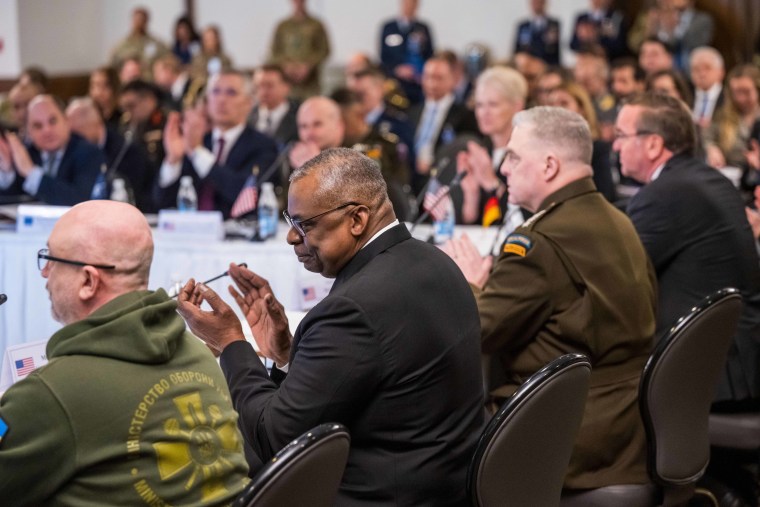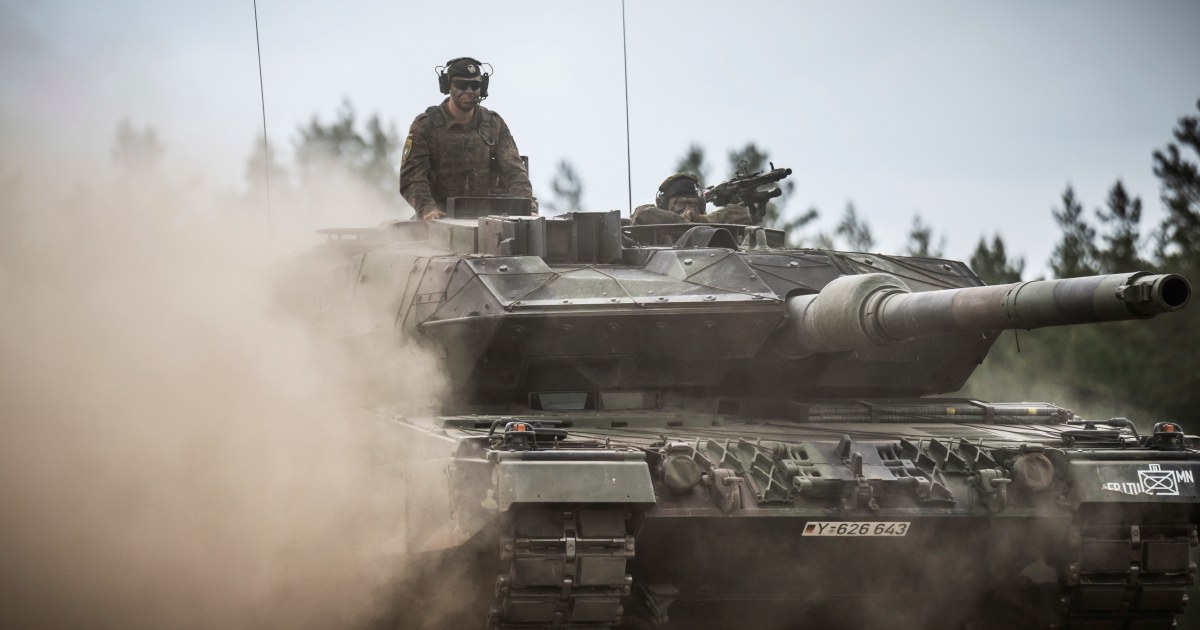‘Freedom for the leopards’
Germany has provided billions in humanitarian and military aid since the start of the war, but Scholz has generally maintained a cautious approach rooted in his country’s history and political culture. That has drawn criticism from Ukraine, Poland and the Baltic nations, which have long called for a stronger response to combat Russia’s expansionist goals.
Some had even coined the term «Scholzing,» which historian and commentator Timothy Garton Ash definite as «communicating good intentions, only to use/find/invent any conceivable reason to delay and/or prevent them from happening.»
Thousands of protesters have gathered outside Parliament in Berlin, while the Ukrainian government has promoted a social media campaign calling on Germany to «release the leopards».
Ukrainian President Volodymyr Zelenskyy has been calling for increased firepower since before the invasion of Russia last February.
He and his advisers have made it clear that the hardware offered by the country’s allies will not be enough to retake its territory, especially as both sides prepare for what many expect to be a crucial period of intense fighting once the winter ends. .
“We need tanks, not 10-20, but several hundred,” Zelenskyy’s chief of staff Andriy Yermak said on his Telegram channel on Monday.
“In order for us to defeat the Russian Federation, we absolutely need tanks,” Oleksiy Danilov, secretary of Ukraine’s National Security and Defense Council, said in an interview last week. “The fact is that the question of which weapon is needed is determined by the military. It is the military that insists that tanks and heavy artillery are crucial today.»
Polish Prime Minister Mateusz Morawiecki has said that Germany has more than 350 active Leopard tanks and another 200 in storage. Poland has committed to sending a company of tanks, usually 14, but he has said the deployment would make more sense as part of an international brigade. Several countries use Leopard tanks, including Canada, the Netherlands, and Sweden.
The United States had been frustrated with Germany’s efforts to pressure Washington on the issue, three US officials told NBC News last week, after Berlin signaled it would be more willing to provide tanks if Washington sent its own M1 Abrams tanks. to Ukraine.
NATO Secretary General Jens Stoltenberg told a news conference in Berlin on Tuesday that Ukraine’s allies have already agreed to send a significant number of armored vehicles and some tanks to Ukraine, with more announcements on the way.
«Battle tanks are, of course, important, both to be able to repel further Russian offensives and so that Ukraine can regain territory and prevail as a sovereign and independent nation in Europe,» he said, speaking alongside German Defense Minister Boris Pistorius. .
«At the same time, we must understand that the allies have already decided to deliver battle tanks, but also more armored vehicles, including infantry and combat vehicles.»
The UK has already committed to sending 14 Challenger 2 tanks to the Ukrainian front line.
The deployment of the tanks will be a gradual process. Ukrainian troops must be properly trained, while tanks require parts for upkeep and are normally deployed alongside infantry units with their own acquisition and training needs.

Germany may not be the only country harboring doubts about once again increasing Western military aid to Ukraine, a move that Russia has consistently warned could cause a dangerous escalation among the nuclear-armed powers.
Kremlin spokesman Dmitry Peskov described the German and US tank plans as «a rather disastrous plan.»
“I am convinced that many specialists understand the absurdity of this idea,” Peskov told reporters on Wednesday.
“Simply for technological reasons, this is a pretty disastrous plan. The main thing is that this is a completely obvious overestimation of the potential (the supply of tanks) that would be added to the armed forces of Ukraine. It’s yet another fallacy, quite deep,” he added.
Earlier this month, Russian President Vladimir Putin replaced the commander leading his forces in Ukraine after months of battlefield setbacks and internal criticism.
But Russia scored its first victory in months on the eastern front of the war by seizing the mining town of Soledar as part of its bloody campaign to seize the nearby town of Bakhmut, though it was unclear how much of the operation took place. . by Russian military or mercenaries from the Wagner Group.
Associated Press contributed.


